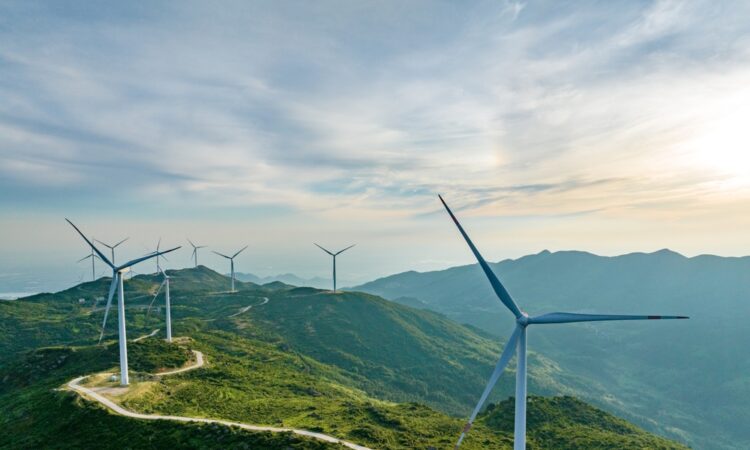Bosnia and Herzegovina: European Union and its bank EIB Global support construction of Vlašić wind farm

EIB Global, the financial arm of the European Investment Bank (EIB) for activities outside the European Union, has signed a €36 million in favourable loans for the construction of a 50 MW wind farm on the high plateau of Vlašić mountain, located about 15 km north-west of the town of Travnik. The loan comes in addition to the €21 million in grants allocated by the European Union in December 2023 through the Western Balkans Investment Fund (WBIF).
Aligned with national strategies for renewable energy, the plant includes up to 18 wind turbines and their connection to the national energy grid and is expected to produce 115 GWh/year of electricity. This production is equivalent to the energy demand of 20 000 households and will displace 140 000 tonnes of CO2 a year. Beyond contributing to the country’s renewable energy goals and reducing reliance on coal, this project will support the transition to a low-carbon economy and foster sustainable development.
“I am glad that the EU has been able to provide €21 million in grants for the construction of the wind farm on Vlašić mountain. Together with our partners, we want to help Bosnia and Herzegovina to take advantage of its favourable climate and geography and start delivering on its path towards a low-carbon economy, reducing coal dependence and fostering sustainable development. The European Union is ready to provide financial resources and expertise to Bosnia and Herzegovina for the energy transition through the Green Agenda for the Western Balkans, the Economic and Investment Plan and the new Growth Plan, and help the energy transition. The energy transition is key to improving the quality of life in Bosnia and Herzegovina and on its path to the EU,” said Head of EU Delegation and EU Special Representative in BiH Ambassador Johann Sattler.
The Vlašić Wind Power Plant project — estimated at over €91 million — has been identified as falling under Flagship 4 — Renewable energy in the EU Economic and Investment Plan. The European Union allocated in total €21 million in grants for its construction. Bosnia and Herzegovina is providing a contribution of €16.7 million, while the KfW development bank is offering a €16.5 million loan.
“As the EU climate bank, this strategic investment demonstrates the EIB’s determination to scale up its financial and technical support for addressing the challenges related to the green transition in Bosnia and Herzegovina and the Western Balkans region. It supports the country’s energy and climate targets, while fostering resilient economic development that ensures a stable energy supply and generates employment. For EIB Global, a leading financier of the energy transition and climate action, it is important to support all countries and regions and make sure this transition is just and sustainable,” said EIB Vice-President Kyriacos Kakouris.
In view of Bosnia and Herzegovina’s commitments to the implementation of the Green Agenda, the country has already started investing in renewable energy production, which will help fight climate change, ensure clean air and boost the national economy.
Minister of Finance of Bosnia and Herzegovina Srđan Amidžić stated: “These types of projects are important, not only in terms of increased climate change, but also in their impact on all of us. The implementation of such projects is important for the whole of Bosnia and Herzegovina, and I hope that there will be many more of them in the future, especially with our partners assisting in development and investing in all regions of Bosnia and Herzegovina equally. It is also important to continue discussing these and similar topics and raising public awareness about renewable energy sources.”
In addition, the EIB has provided around €300 000 in technical assistance grants under its Economic Resilience Initiative for the development of this flagship renewable energy project, with the goal of supporting resilient and inclusive growth in the Western Balkans. The investment is expected to be implemented in cooperation with Germany’s KfW development bank under the Mutual Reliance Initiative (MRI), which is able to offer not only financing, but also expertise.





